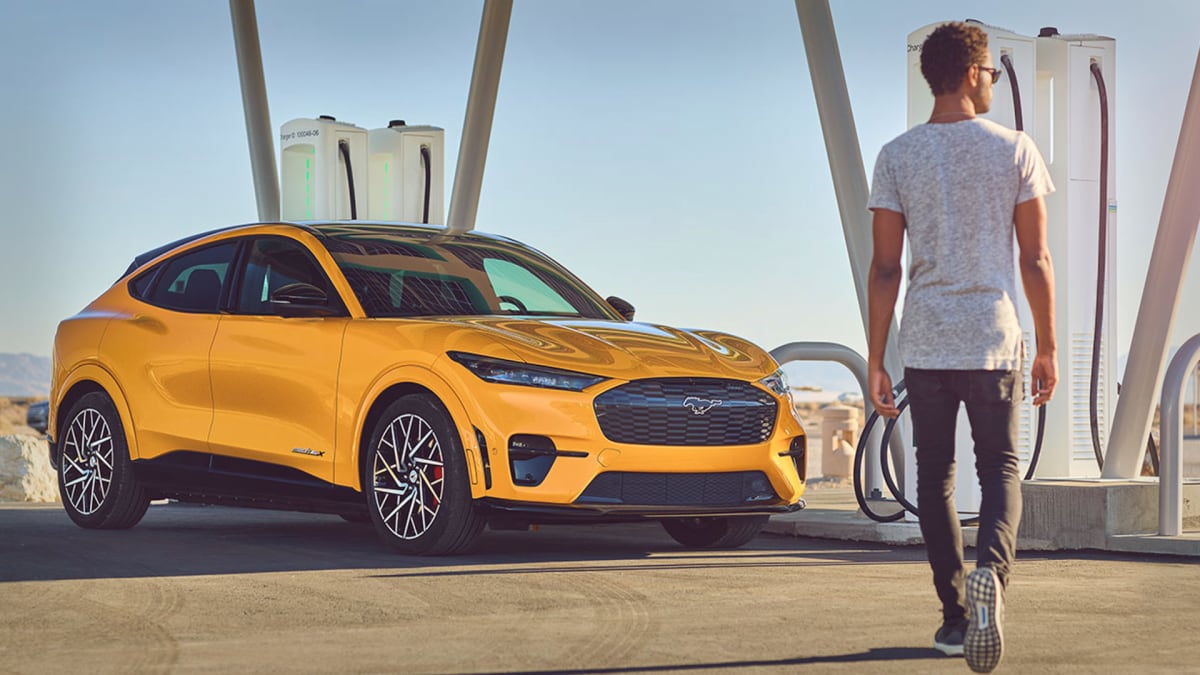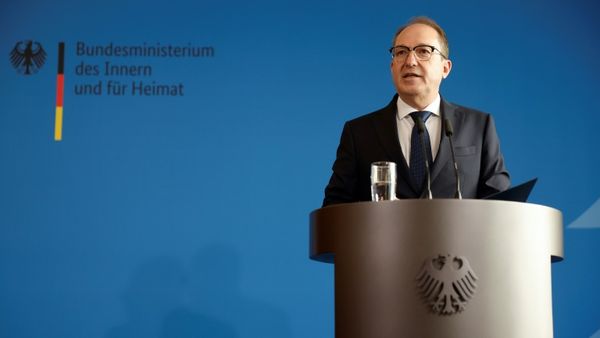
Ford is no longer betting on gasoline cars for its future.
In October the Dearborn, Mich., automaker had announced the retirement of the Ford Fiesta sedan, a model produced since 1976.
RELATED: Ford Has Good News for Fans of Its EVs
"It’s time to say goodbye to the little car that has touched us all," Ford Europe tweeted on Oct. 26. "As one era ends, another is just getting started – and we can’t wait to show you what we’ve got coming."
Production of the small compact will stop at the Cologne, Germany, plant in June. Marketed since 1976 and sold exclusively in Europe since 1996, the Fiesta has sold a total of 22 million units over 47 years.
About 3,800 Jobs Will Be Cut
The Fiesta is one of the collateral victims of the new Ford era designed by Chief Executive Jim Farley. It's Ford's participation in the electric revolution.
While the blue oval is careful not to upset American consumers, it relies on public environmental policies in Europe to make a radical shift towards EVs.
The legacy carmaker plans to sell 600,000 fully electric cars on the Continent in 2026 before going 100% electric by 2035.vAnd that means Ford is focusing on its future zero-emission models by saying goodbye to parts of its current range.
Ford has stopped producing the Mondeo, while the Focus will no longer be sold in 2025. Production of the Ford S-Max and Ford Galaxy will end in 2024.
At the same time, the manufacturer of the iconic F-150 pickup/truck is adapting its industrial tools. The Cologne plant will soon begin producing a new electric SUV model designed in partnership with the German giant Volkswagen. (VWAGY)
Ford will use the MEB electric platform developed by the German automaker. This platform enables assembly of several different car models on the same technical basis. Last March Ford injected $2 billion into this site, where the first EVs will roll off the production line later this year.
A reorganization of the European factories was therefore expected -- and it has just started, with Ford eliminating some 3,800 jobs in Europe, or almost 11% of Ford's workforce on the Continent, to create "a leaner, more competitive cost structure."
By 2025, Ford plans to resize its European engineering footprint, resulting in 2,800 fewer jobs, the company detailed in a statement. These changes are driven by the transition to fully electric powertrains and reduced vehicle complexity.
Ford will maintain an engineering organization of about 3,400 roles in Europe, focused on vehicle design and development, as well as the creation of connected services.
Additionally, a leaner cost structure will be created for Ford’s administrative, marketing, sales and distribution functions in Europe, which includes the elimination of 1,000 positions.
The company, which had 35,000 employees in Europe, said it will now engage in consultation with its social partners "with the intent to achieve the reductions through voluntary separation programs."
CEO Jim Farley Speaks on Feb. 15
In detail, around 2,300 jobs will be cut in Germany, 1,300 in the U.K. and 200 in the rest of Europe. The largest European factory is Cologne, where Ford employs nearly 14,000 people.
"We are completely reinventing the Ford brand in Europe," said Martin Sander, general manager of Ford Model e in Europe. "Paving the way to a sustainably profitable future for Ford in Europe requires broad-based actions and changes in the way we develop, build, and sell Ford vehicles. This will impact the organizational structure, talent, and skills we will need in the future."
Noteworthy is that it is an official of Ford e, the division of Ford in charge of the development of EVs, who comments on the new job cuts. It is a clear signal about the car manufacturer's priorities.
The resizing to make way for EV development should come quickly because Ford is in discussion with possible buyers of its German plant in Saarlouis, which employs nearly 4,600 people. This factory produces the Focus, which Ford will stop producing by 2025.
In the U.S. Ford also plans to cut costs and aims to save $3 billion annually.
Globally the company is investing more than $50 billion in EVs through 2026. Its goal is to catch up with Tesla, (TSLA) which currently dominates the electric vehicle market.
With this in mind, Ford indicated on Feb. 13 that it would continue to partner with the Chinese supplier Contemporary Amperex Technology, or CATL, to build a battery factory for electric vehicles, despite the current tensions between China and the U.S.
This factory, to be based in Michigan, is estimated to cost $3.5 billion and will employ about 2,500 people. It will be operational in 2026.
Farley and Chief Financial Officer John Lawler will discuss the company’s transformation plan on Feb. 15 at the upcoming Wolfe Research Global Auto, Auto Tech, and Auto Consumer Conference 2023 in New York City.







